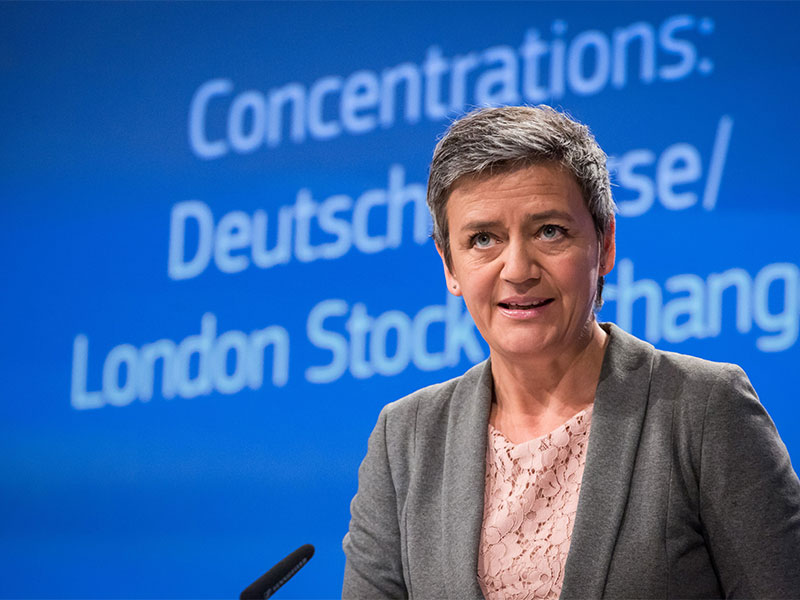Google hit with €2.4bn fine by EU over antitrust concerns
European antitrust regulators have levied a record fine on Google over competition concerns raised around search engine manipulation

European Commissioner for Competition Margrethe Vestager hit Google with its biggest ever fine
On June 27, Google was hit with its largest ever fine for favouring its own shopping service over rivals in search engine results. The record $2.7bn fine is the result of a seven-year investigation by EU antitrust regulators into competition concerns posed by the internet giant’s online influence.
Regulators concluded that Google had abused its market dominance as a search engine to “give illegal advantage” to its shopping service. Margrethe Vestager, the European Commissioner for Competition said Google had “abused its market dominance as a search engine by promoting its own comparison shopping service in search results, and demoting those of competitors”, rather than outperforming rivals through innovation.
Under EU rules, if Google does not end its search engine manipulation practices within 90 days, it will face further penalties
The manipulation of search engine results had “denied other companies the chance to compete on the merits” and “denied European consumers a genuine choice of services”, Vestager added.
The investigation found that when Google launched online shopping comparison platform Froogle, now known as Google Shopping, in 2004, it struggled to compete with established rivals. Google decided to give preference to Google Shopping offerings in search engine results to gain traction with customers. Algorithms were also designed to demote other shopping services, with even the most highly ranked non-Google provider appearing on page four of a Google search result. Since 95 percent of people using a Google search will click on one of the top ten results on the first page, this drastically reduces the traffic to competitors.
Under EU rules, if Google does not end its search engine manipulation practices within 90 days, it will face penalty payments of five percent of the average daily worldwide turnover of parent company Alphabet. Since the ruling legislates against specific business practices, the case has far reaching implications for competition policy and lays the groundwork for further legislation against Google.
This landmark ruling defines a new type of anti-competitive behaviour, preventing companies with a market share from favouring certain products, and goes some way to updating the outdated competition framework to deal with the tech sector.
The European Commission is at the forefront of bringing competition legislation into the digital age, and this Google ruling is part of a wider crackdown on tech firms over concerns such as data hoarding. Last month, the Commission fined Facebook €110m after finding it had provided misleading evidence in an earlier investigation into its acquisition of WhatsApp. Google is involved in several other EU investigations, relating to competition concerns posed by its Android operating system and online search advertising dominance.
This ruling has the potential to fray already strained relations between the US and EU. The US has accused EU regulators of issuing oversized fines to US tech companies. However, since seven of the largest ten tech companies by revenue are US firms, legislation is bound to particularly affect that part of the world.













